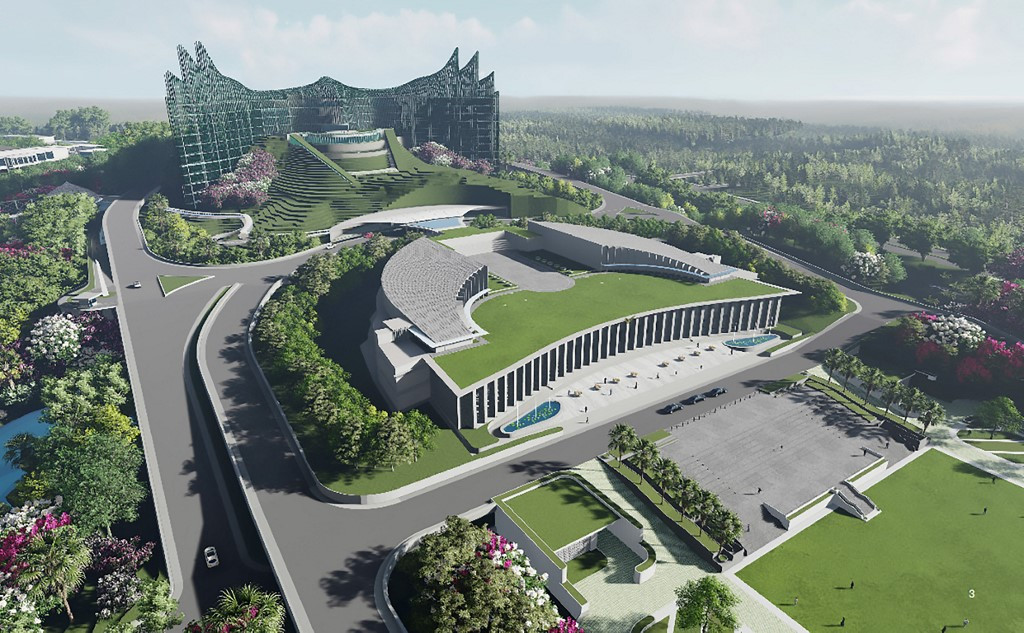Popular Reads
Top Results
Can't find what you're looking for?
View all search resultsPopular Reads
Top Results
Can't find what you're looking for?
View all search resultsWork on future capital to start in H2
Change text size
Gift Premium Articles
to Anyone
T
he government must begin work on the new capital city in the second half of this year, as further postponement would jeopardize plans to make the move in 2024, according to the Public Works and Housing Ministry.
President Joko “Jokowi” Widodo has expressed his wish to move the capital by Aug. 16, 2024, a day before Independence Day. That target leaves a rather short time for the construction of such a massive project.
The government would have just over two years to construct the designated city center for the state palace, ministries, legislature and other government agencies, while also building roads, as well as water, sanitation and electricity infrastructure.
“To complete it in 2024, we assume that it is critical to start in the early second half of 2022,” said Imam Santoso Ernawi, who heads the new capital planning and development task force at the Public Works and Housing Ministry, as well as the ministry’s Human Settlements Directorate General.
“By then, physical [construction] has to begin, especially for all [the buildings] considered a priority,” Imam said during a discussion broadcast live on Wednesday.
Read also: Indonesia passes law to relocate capital to remote Kalimantan
In his presentation, Imam revealed that the new capital would occupy 6,671 hectares divided into three areas. Area 1, to house core government buildings like the state palace, ministries, civil servant housing and a state mosque, would need to be completed in 2024.
The ministries, he explained, would be divided into four areas according to the four ministerial coordinating offices they belong to. Each area would contain four apartment towers to accommodate a total of 1,300 people.
Area 2 would be home to an international-grade university and sports center, while Area 3 would include an international-grade hospital. Construction of these facilities is to begin after Area 1 is finished.
However, the ministry has decided to split Area 1 into Areas 1A and 1B. The latter contains some houses owned by East Kalimantan residents. The ministry aims to clear the land to prepare for construction there between 2029 and 2032.
“Some land is still owned by residents. Therefore, we’ve split it into 1A and 1B. 1A is relatively clean, because it only consists of production forest [areas],” Imam said.
Mohammd Roudo, acting director of Region II at the National Development Planning Agency (Bappenas), said in the same discussion that the new capital would be developed in three phases, starting with Phase 1 from 2022 through 2024, followed by two 10-year plans spanning until 2045.
From 2025 to 2034, the government will start attracting private companies to develop the city. During this period, economic and innovation centers would be built, he said.
During the last 10 years, the government will develop the new capital city further by resurrecting its surrounding cities and developing eastern Indonesia. The government aims for the new capital to claim a place among the top-10 most livable cities in the world in that period and to attract foreign talent, particularly from the ASEAN region.
Read also: New capital will take decades, not years: Bappenas
A law passed last month serves as the legal basis for the relocation of the capital to remote Kalimantan and for the new city’s construction. The government must select a head for the capital city authority within two months of the law’s passage.
However, as the 2022 state budget was passed last year, the government must make adjustments to allocate funds for the new capital project.
The Finance Ministry plans to shift some funds allocated for ministries to the new capital city project, or else reallocate funds from the national economic recovery (PEN) budget.
Finance Ministry expert staff member Made Arya Wijaya said on Wednesday that the upcoming capital city authority would also receive funding from the state budget for its operations.
Despite a structural resemblance to a provincial government, it will not use a regional budgeting mechanism, Made explained.
Instead, the government is to treat it like a ministry or agency and, just like those institutions, it will be headed by a presidential appointee.
“The authority’s head will be at the same level as that of a minister. It will receive funding from the state budget,” Made said.










